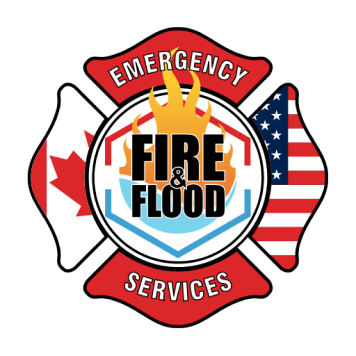

Operations
Fire & Flood Emergency Services patented water delivery technology is designed to maximize heat energy absorption and increase moisture content in fuels by delivering water in precise volumes, flow rates, and dispersion patterns.
Wildfire
HIGH VOLUME MOBILE HYDRANT SYSTEM
Fire & Flood Emergency Services, All-Hazard High-Volume Mobile Hydrant System capabilities allow countries, communities, and most importantly, the people a fighting chance against heightened natural disasters. A Proactive mindset can reduce and/or eliminate a reactive situation.

Our patented suppression systems are the new tool to bring first responders 331 times the volume of suppressant for increased safety and success rates to match the new global threat of climate change. From the furthest remote communities to highly populated urban areas, our response crews and systems are deployed in priority sequence so that we can provide the highest level of strategic and tactical success. We are all in this together and we need to trust and rely upon each other.
Our systems have been engineered, designed, and scaled to provide proven solutions. When the threat of fire is at your door, your obvious choice is Fire& Flood Emergency Services. Providing a safe corridor while supplying firefighters and aviation support with a sustained water source has been and will continue to be a game changer this wildfire season.

WILDFIRE AND CULTURAL PRESCRIBED FIRE PROGRAMS
FIRE BEHAVIOUR DRIVERS:
Fire behavior is defined as the way fuel ignites, flame develops, and fire spreads and exhibits other related phenomena as determined by the interaction of fuels, weather, and topography.
These three influences (fuel, weather, and topography) are also referred to as the “fire behavior triangle” and are the main elements of the fire environment.

Each of these elements can vary widely in time and space to influence fire behaviour. Although short-term fire weather (from a period of minutes to a few days)plays the greatest role in fire behaviour, the best opportunity to modify fire behaviour is by treating the existing fuels on the landscape. The other two factors are to increase the moisture content of the available fuels and to raise the relative humidity of the microclimate.

Climate, weather conditions, type and condition of fuels, previous fire history, time of year, aspect (orientation to the sun and prevailing winds), topography and ignition source all interact to affect the behaviour of the fire, as well as the intensity and extent of the fire. This multitude of variables means that fire behaviour on the landscape is also highly variable, and mitigation, preparedness and response measures must be scalable to overcome these variabilities.
The Canadian Forest Fire Danger Rating System is modeled using the Fire Weather Index (FWI) System, which tracks several types of weather observations throughout the season. These observations include temperature (0°C), relative humidity (%), wind speed (km/h), wind direction and precipitation. The system consists of indices that use weather observations to track the moisture content of fine and coarse fuels that are present on the landscape.
The three main indices are the Fine Fuel MoistureCode (FFMC); Duff Moisture Code (DMC); and Drought Code(DC). These indices have different drying rates and sensitivities to rainfall (or water), as finer (smaller) and more exposed biomass particles tend to become wet or dry more rapidly under changing conditions compared with larger particles.
Together, these indices form a mathematical system to consider when making educated predictions of wildfire probabilities and behavior consequences.


“THE LEADING EDGE OF INNOVATION TO OUTPACE THE GROWING DEMANDS OF CLIMATE READINESS.”
Water Distribution
THE RIGHT AMOUNT AT THE RIGHT TIME IN THE RIGHT PATTERN:
Fire & Flood excels in accurately determining the right amount of water needed, dispersed at the right time to achieve the objective in the most effective and efficient method possible. The cannons’ ability to spray water up to 590’, water can be directed into or near the heat energy thermal where mass heat energy transfer to the surface area of water droplets can occur. As the evaporation rate is proportional to the diameter of the droplet, larger droplets can fall to the ground and ladder fuels, contributing to increased moisture content of available fuels. With the right amount of water at the right time, a balance is achieved between mass heat energy transfer and wetting down of available fuels with the minimal surface runoff of unused water.
Fire & Flood Emergency Services patented water delivery technology systems have rapid deployment capability. In an independently reviewed timed trial, from arrival onsite, a multi-kilometer supply system was unloaded, set up(including a secure road crossing for access/ egress), and delivered effective high- volume high-pressure water in 3.5 hours.

Our Focus

Deliver exemplary service-based solutions
Maximum objective effectiveness
Water delivery systems are scalable to ensure efficacy
Equipment is packaged for rapid deployment, by truck or by helicopter
Our specialized water movement staff are trained to a type 2 wildfire standard
Highly mobile equipment
Transportation corridor crossings to maintain access and egress routes
Tracked equipment can deploy suppression systems by remote operations through a GPS link where exposure to risk is unacceptable.
To suppress and absorb the heat energy of an unwanted wildfire, Fire & Flood EmergencyServices patented water delivery technology systems, delivering a proportionate volume, flow rate, and pressurized distribution pattern optimizing molecular spacing should be your top consideration.

Wildfire
Providing a safe corridor while supplying firefighters and aviation support with a sustained water source has been and will continue to be a game changer this wildfire season.

Flood Mitigation
Prepared planning as with our advance water monitoring systems, designed technology to collect data and alert users of potential risk of flooding before significant damage is caused.
